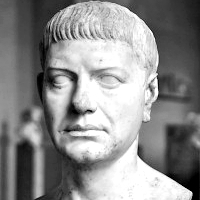Zhu Yuanzhang (Emperor Taizu of Ming) MBTI Personality Type
Personality
What personality type is Zhu Yuanzhang (Emperor Taizu of Ming)? Zhu Yuanzhang (Emperor Taizu of Ming) is an ESTJ personality type in MBTI, 6w5 - sp/so - in Enneagram, SCOEN in Big 5, LSI in Socionics.
朱元璋在历代创业之主中出身最为微贱,但具备人事和组织才干,登基以来则将明朝整合为一个严密均匀、同质化的“大型村庄”,高度中央集权并厘定了复杂的分工合作流程(Huang 2007, pp. 198-204),系将Te运用到极致的风格。 然则太祖并未有超绝的长远眼光,他施政的方针在于“稳定”,即一个以庞大的自耕农为基础的统一国家。明朝政府对于商业所持贬抑态度远超赵宋,亦对于经济的多元化、服务性质的组织和事业缺乏兴趣,其根源在于创业者。套用MBTI的模板,系以Si作为辅助。 English version: Zhu Yuanzhang was the most humble of all entrepreneurial lords, but he had the personnel and organizational skills to consolidate the Ming dynasty into a tightly knit, homogeneous "large village" with a high degree of centralization and a complex division of labor (Huang 2007, pp. 198-204). This is a style that utilizes “Te” to its fullest extent. (Te-dom) However, Zhu did not have a long-term vision, and his policy was to "stabilize" a unified state based on a large peasantry. The Ming Dynasty was significantly more inhibited towards business than the Zhao and Song dynasties, and lacked interest in economic diversification, service organizations and businesses. This was rooted in the entrepreneurial emperor, i.e., Zhu Yuanzhang's mindset. Apply the MBTI template, it is Si-aux.
Biography
The Hongwu Emperor (21 October 1328 – 24 June 1398)[4] Zhu Yuanzhang (Chinese: 朱元璋; Wade–Giles: Chu Yuan-chang), was the founding emperor of the Ming dynasty, reigning from 1368 to 1398. As famine, plagues and peasant revolts swept across China in the 14th century, Zhu Yuanzhang rose to command the forces that conquered China, ending the Mongol-led Yuan dynasty and forcing the Mongols to retreat to the Eurasian Steppe. Zhu claimed the Mandate of Heaven and established the Ming dynasty at the beginning of 1368 and occupied the Yuan capital, Khanbaliq (present-day Beijing), with his army that same year. Trusting only his family, he made his many sons powerful feudal princes along the northern marches and the Yangtze valley. The reign of the Hongwu Emperor is notable for his unprecedented political reforms. The emperor abolished the position of chancellor, drastically reduced the role of court eunuchs, and adopted draconian measures to address corruption. He also established the Embroidered Uniform Guard, one of the best known secret police organizations in imperial China. In the 1380s and 1390s a series of purges were launched to eliminate his high-ranked officials and generals; tens of thousands were executed. The emperor encouraged agriculture, reduced taxes, incentivized the cultivation of new land, and established laws protecting peasants' property. He also confiscated land held by large estates and forbade private slavery. At the same time, he banned free movement in the empire and assigned hereditary occupational categories to households.[13] Through these measures, Zhu Yuanzhang attempted to rebuild a country that had been ravaged by war, limit and control its social groups, and instill orthodox values in his subjects,[14] eventually creating a strictly regimented society of self-sufficient farming communities.
Related Personalities

Marco Polo

Tamerlane

Charles IV, Holy Roman Emperor

Edward III of England

Casimir III the Great

Bayezid I, Ottoman Sultan

Ibn Battuta

Mansa Musa








